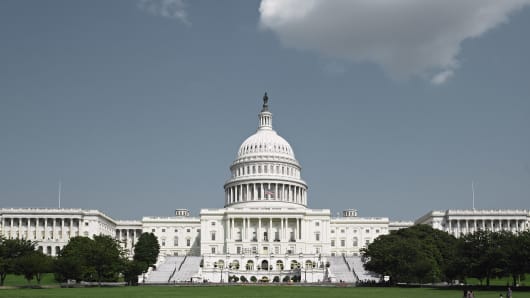With an entire generation on the cusp of retirement, the rules governing retirement plan administration need to be modernized to make it easier for employers to offer savings programs for the men and women they employ.
In particular, the Employee Retirement Income Security Act of 1974, also known as ERISA, should be updated to facilitate modern savings strategies.
The subcommittee I chair on Health, Employment, Labor and Pensions (HELP) recently held a hearing on ways to update ERISA, remove regulatory barriers facing retirement savers, and empower workers and families with a variety of tools to save for retirement.
As life expectancy increases, it is important for retirees to find ways to save more and stretch their dollars even further.
Due to compliance uncertainty under ERISA, products that offer guaranteed streams of income, such as annuities, are rarely an option within employee benefits packages. One study found that only 5 percent of 401(k) plans offer in-plan lifetime income products.
More from Fixed Income Strategies:
Flow of funds into alternatives starts to dry up
Perky economy puts credit-risk investing tack in peril
'TIPS' on how to deal with possible inflation rise
To address this uncertainty, Rep. Lisa Blunt Rochester, D-Del., and I introduced the Increasing Access to a Secure Retirement Act, which outlines a plan sponsor's fiduciary requirement when selecting an insurer of an annuity product.
Our bipartisan bill establishes the criteria for a plan sponsor to meet the standards of a fiduciary safe harbor. The plan provider must engage in an objective, thorough and analytical search for the insurer; consider the insurer's ability to pay benefits and the cost of the contract; and conclude that the insurer can satisfy all of its obligations and that the relative costs of the contract are reasonable.
By clarifying rules surrounding annuity plans, Congress can broaden savings options available to employees across the country and give plan sponsors the assurance that they are making the best choice for their employees.
The HELP subcommittee has also examined policy initiatives to expand open Multiple Employer Plans, increase the automatic cash-out limit for retirement plans and allow employers to provide information about retirement benefits electronically. These commonsense proposals all enjoy bipartisan support and will make offering retirement plans easier and more secure for large and small businesses.
In Congress we need to start the dialogue on how we can simplify and modernize our retirement policies so more employers can offer their employees the tools they need to save for retirement.









